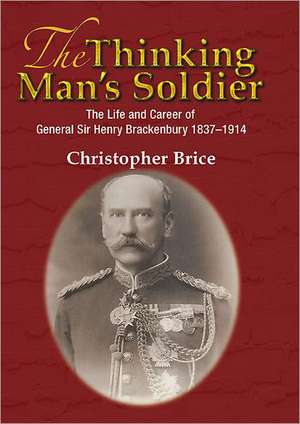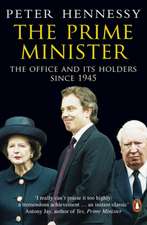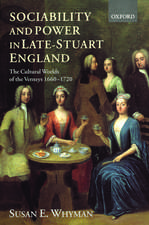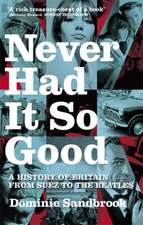The Thinking Man's Soldier: The Life and Career of General Sir Henry Brackenbury 1837-1914: Helion Studies in Military History, cartea 10
Autor Christopher Briceen Limba Engleză Hardback – 18 iul 2013
Din seria Helion Studies in Military History
-
 Preț: 269.14 lei
Preț: 269.14 lei -
 Preț: 166.40 lei
Preț: 166.40 lei -
 Preț: 243.66 lei
Preț: 243.66 lei -
 Preț: 200.39 lei
Preț: 200.39 lei -
 Preț: 125.88 lei
Preț: 125.88 lei -
 Preț: 169.13 lei
Preț: 169.13 lei - 8%
 Preț: 369.27 lei
Preț: 369.27 lei -
 Preț: 243.33 lei
Preț: 243.33 lei -
 Preț: 123.88 lei
Preț: 123.88 lei -
 Preț: 166.40 lei
Preț: 166.40 lei -
 Preț: 166.61 lei
Preț: 166.61 lei -
 Preț: 199.19 lei
Preț: 199.19 lei -
 Preț: 198.21 lei
Preț: 198.21 lei -
 Preț: 198.92 lei
Preț: 198.92 lei -
 Preț: 242.19 lei
Preț: 242.19 lei -
 Preț: 105.67 lei
Preț: 105.67 lei -
 Preț: 137.11 lei
Preț: 137.11 lei -
 Preț: 166.67 lei
Preț: 166.67 lei - 8%
 Preț: 368.36 lei
Preț: 368.36 lei -
 Preț: 335.97 lei
Preț: 335.97 lei
Preț: 226.56 lei
Nou
Puncte Express: 340
Preț estimativ în valută:
43.35€ • 45.26$ • 35.88£
43.35€ • 45.26$ • 35.88£
Carte indisponibilă temporar
Doresc să fiu notificat când acest titlu va fi disponibil:
Se trimite...
Preluare comenzi: 021 569.72.76
Specificații
ISBN-13: 9781907677694
ISBN-10: 1907677690
Pagini: 208
Dimensiuni: 165 x 34 x 241 mm
Greutate: 0 kg
Editura: HELION & COMPANY
Seria Helion Studies in Military History
ISBN-10: 1907677690
Pagini: 208
Dimensiuni: 165 x 34 x 241 mm
Greutate: 0 kg
Editura: HELION & COMPANY
Seria Helion Studies in Military History
Descriere
Descriere de la o altă ediție sau format:
Sir Henry Brackenbury is a now largely forgotten but extremely important soldier, writer, and administrator of the late Victorian era, described as "a very dangerous man" and a man who "pulled the army out of a hole in South Africa".
Sir Henry Brackenbury is a now largely forgotten but extremely important soldier, writer, and administrator of the late Victorian era, described as "a very dangerous man" and a man who "pulled the army out of a hole in South Africa".














